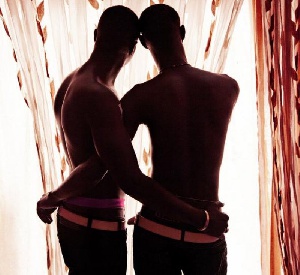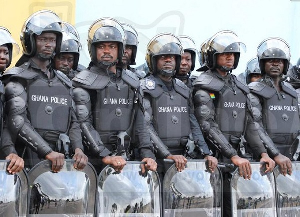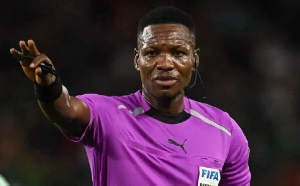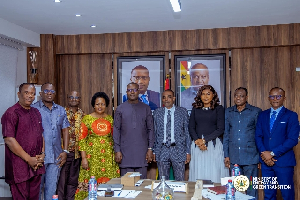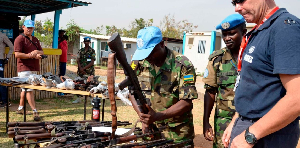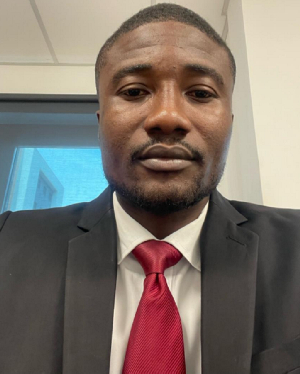afternoon in 2012, Kwasi (not his real name) gathered the courage and opened up to Frederick Ansah, the Counsellor at his school. He confided in the Counsellor and revealed to him his attraction to men.
Then 18, Kwasi told Ansah, who is also a Pastor and a Teacher at the same school, that he had been sexually attracted to men since he was 14 and that he had had sex with several of his fellow students.
Kwasi’s decision to disclose his sexual orientation to Ansah on that fateful day was made under duress. He was driven by taunts from schoolmates, who were threatening to go public with a picture of him kissing a male student at their senior high school on the outskirts of Kumasi.
Kwasi told Ansah that the classmate he kissed had pretended to be gay to deceive and blackmail him.
“There was a plot,” Kwasi said. “I stupidly agreed to his proposal, believing it was genuine”.
According to Kwasi, the students behind the alleged plot knew that if school authorities ever learned of the kiss he would be expelled, so they extorted 500 Ghana Cedis from him (about $ 120), in exchange for their silence.
“I was seeing the Counsellor, a religious leader. He gave me assurance. I trusted him, but he disappointed me,” Kwasi said of Ansah, who had promised to treat his coming out with the utmost respect and to help him become ‘straight’.
In December 2012, a witch-hunt of gays ensued at Kwasi’s school when another person came out and was forced to identify fellow gay students.
A long list of names was posted on the school notice board under the heading, “Due for Dismissal; Report to the Disciplinary Committee as soon as possible.”
Then 19, Charles (not his real name) who was a second-year student, was fourth on the list. Surprised, he walked into the room where Disciplinary Committee was seated, gripped with fear but confident he would be absolved because he had not been caught or blackmailed like Kwasi.
At the hearing, he was shocked to see Ansah, sit quietly as other members of the committee heaped accusations on him, accusations presumably based on information Charles had shared confidentially with Ansah. Charles had also been speaking to Ansah about his queer status.
Charles mustered the courage to speak up, telling the committee that he had told Ansah of his same-sex attraction in hopes that the Counsellor would help him overcome the desires.
“I was lucky. I think it’s because of how emotionally I spoke the truth that is why I was spared in the mass dismissal because innocent people were also dismissed,” he said.
The Ghana Education Service Discipline Code for Students stipulates that students who are found guilty of “sexual misconduct” should be summarily dismissed.
The 2016 case of two close friends at Opoku Ware Senior High School in Kumasi, demonstrates the damage these rules can cause.
In January 2016, the two teenage students were accused of kissing and having sex, allegations they denied. A section of students, some wielding sticks and belts tried, to attack them for their “unacceptable” sexual orientation. The crowd refused to retreat until the students confessed to their “crime”. It was only on the advice of a school Counsellor that the mob dispersed.
“On the day we were summoned [before a disciplinary hearing], we denied all charges, but school authorities compelled us to say, ‘yes, we’re gay,’ in order to avoid being beaten to a pulp by the boys. They claimed it was our confession,” one of them recounted.
“The authorities did not even enquire to get evidence before they asked us to stay home for two weeks, which ended up extended to two months,” he added.
Both students said the emotional trauma they suffered as a result of the near assault, and the subsequent lengthy suspensions handed them negatively affected their performance at exams that year.
“We suffered stigma. It hurt me a lot because our final exam was approaching. Even in class, people didn’t want to sit by you. Learning became difficult because you have to stay home. Some of our friends still don’t talk to us,” he said.
“It was very bad because school authorities asked us to go home without allowing us to take any books along. We were not allowed to go to our rooms to take anything. Their explanation was that the other boys might lynch us,” he recounts.
Frank Okyere, a Researcher, a student Counsellor and Teacher at another Senior High School in Kumasi thinks the sexual misconduct clause in the Education Service discipline Code for Students is not helpful because school authorities often hide behind provisions of the code to unilaterally dismiss students accused of being gay because largely the Ghanaian society is conservative.
“If they are accused and you dismiss them, you are not helping them express themselves. Therefore, they get to conclude that they are not welcomed in this world,” he said.
Okyere is also executive director at Seat of Grace, a pastoral and counselling NGO group that tries to convert sexual minorities to heterosexual orientations, a controversial and potentially harmful practice.
Still, he suggests the code be revised to accept lesbian, gay, bisexual, transgender and intersex (LGBTI) students and provide guidance to assist them emotionally rather than demonising them.
“Education is holistic, teachers are supposed to help students in and outside the classroom. I think that particular piece must be reviewed. A regulation that is geared towards reforming students must be applied,” he advocated.
Alberta Agnes Tardie, a senior tutor at Opoku Ware Senior High School in Kumasi, describes existing guidance and counselling systems in schools as “weak and useless.” She believes this institutional weakness has contributed to the dismissal of perceived homosexuals from the education system.
“Students don’t trust Counsellors anymore because most of them are pastors who demonise them, at the least,” she said.
Tardie hopes that when more professional Counsellors are employed in senior high schools, the situation may improve.
A Preacher at the Assemblies of God Church, Rev. Dr David Okai, also worries that counselling in schools is too demonising, especially when it involves sexual minorities. He believes the church must work to embrace LGBTI people, understand them, give them love and work on their emotions.
A November 2016 study by the NGO Seat of Grace, titled ‘Legalising Homosexuality in the World; Will Ghana join the New Order’ was recently presented to senior high schools students in Kumasi.
The study reveals that the threats and assault of perceived homosexuals in Ghana’s schools and in society at large is a major hold back for progress.
Okyere, the lead researcher, says special training must be given to school Counsellors to equip them to be able to address sensitive matters concerning sexual and gender minorities.
The document also confirmed that sexual and gender minorities are often afraid of being demonised by the majority of senior high school Counsellors who double as religious leaders.
There is clearly the need for an intensified education on sexual orientations in school, Charles said. “I was lucky I was not expelled from school. It could have ended my education’.
Opinions of Thursday, 26 January 2017
Columnist: princekappiah@gmail.com

